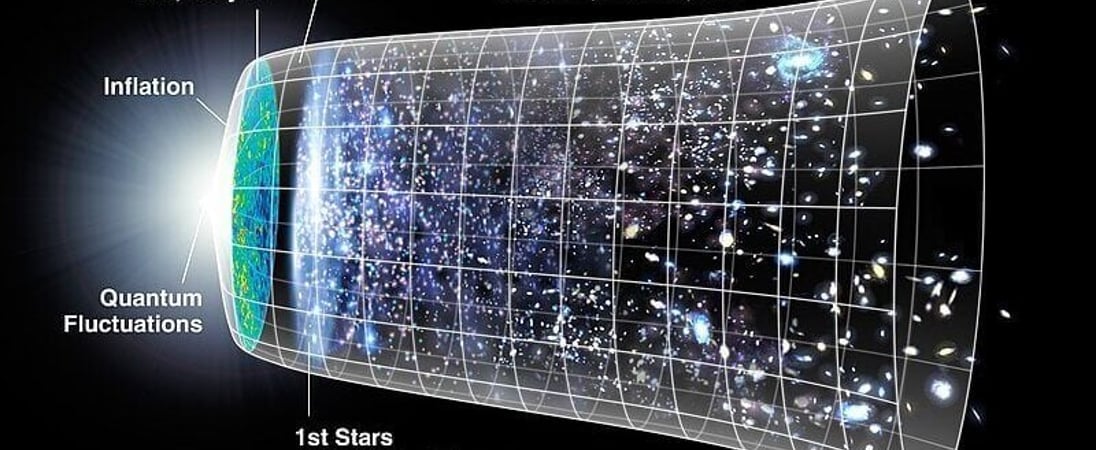
Big Bang Day
Big Bang Day celebrates the scientific breakthrough that helped us understand the universe’s origin. This day highlights the monumental discovery of the cosmic microwave background radiation.
This faint glow, left over from the Big Bang, provided strong evidence for the theory. It marks a moment when our understanding of the universe expanded significantly, showing that everything began from a single, extremely hot, and dense point around 13.8 billion years ago.
How to Celebrate Big Bang Day
Stargazing Party
Gather friends and family for a night under the stars. Bring telescopes, blankets, and hot drinks. Find a spot away from city lights and gaze at the wonders above.
Spot constellations, planets, and maybe even a meteor or two. Stargazing apps can help identify celestial objects. Make it a cosmic adventure!
Cosmic Crafts
Get creative with space-themed crafts. Build models of the solar system using styrofoam balls and paint. Create galaxy jars with glitter, water, and food coloring. Kids can design their alien masks or rocket ships. Display these masterpieces at home to remember the day.
Space Movie Marathon
Host a movie marathon featuring space-themed films. Classic choices include “Interstellar,” “2001: A Space Odyssey,” and “Star Wars.”
Don’t forget the popcorn! Dim the lights, turn up the sound, and let the intergalactic adventures begin. Discuss favorite scenes and imagine life in space.
Science Experiments
Dive into fun and simple science experiments at home. Create a mini Big Bang with a balloon and baking soda. Build a vinegar and baking soda rocket.
Demonstrate gravity with falling objects of different weights. These activities spark curiosity and bring science to life.
Cosmic Cuisine
Cook up a space-inspired menu. Try star-shaped cookies, galaxy cupcakes with swirled icing, and planet-themed fruit platters.
Use food coloring to make “nebula” drinks. Create an out-of-this-world cosmic dining experience. Share recipes and enjoy a delicious celebration.
Space-Themed Reading
Dive into books about space and the universe. Choose from fiction and non-fiction. “Cosmos” by Carl Sagan or “The Martian” by Andy Weir are great picks.
Read aloud to kids or enjoy quiet reading time. Discuss what you’ve learned and imagined about the vast cosmos.
Reasons for Celebrating Big Bang Day
We celebrate Big Bang Day to honor the incredible achievements in cosmology that have reshaped our view of the universe.
This day reminds us of the power of scientific exploration and curiosity. It acknowledges the hard work of scientists who strive to unravel the mysteries of our cosmos.
This observance also emphasizes the importance of continuing research to uncover more secrets of the universe. It fosters a sense of unity and wonder, reminding us that we are all part of something vast and extraordinary.
History of Big Bang Day
Big Bang Day began as a way to celebrate and acknowledge one of the most significant scientific discoveries about our universe’s origins. The first official Big Bang Day was celebrated in 2013.
It was inspired by the European Space Agency’s release of an all-sky map showing the oldest light in the universe, called the cosmic microwave background radiation. This map provided more precise data about the universe’s early state, enhancing our understanding of its formation.
The idea to mark this discovery with a special day came from a collaboration between scientists and science enthusiasts.
They wanted to honor the work of astronomers like Georges Lemaître, who first proposed the Big Bang theory in 1927, and later confirmations by Edwin Hubble, who observed that galaxies are moving away from each other.
These findings fundamentally changed our view of the universe. By celebrating Big Bang Day, we appreciate the continuous efforts of scientists who explore the cosmos and bring us closer to understanding the universe’s mysteries.
Also on ...
View all holidaysNational Single Parent Day
Raising kids solo can be tough, but single parents are superheroes who manage it all. Hats off to their resilience, love, and dedication!
World Down Syndrome Day
Embrace the resilience and unique beauty that shines brightly within individuals who possess an extra chromosome, fostering compassion and understanding.
World Poetry Day
With words as paint and emotions as the canvas, verses come alive, painting stories of heart and soul, in a symphony of expression.
World Puppetry Day
From simple hand puppets to elaborate marionettes, these lovable characters delight audiences young and old.
We think you may also like...
National Aviation Day
Celebrate flight pioneer Orville Wright’s birthday on National Aviation Day by learning about the history of flight, making paper airplanes, or learning to fly yourself.
Internaut Day
Be an “internaut” and learn more about how best to navigate and make use of the remarkable tool most of us have at are fingertips all the time: the internet.







